Rachel Jeantel is a pretty Black girl like many others I see on a regular basis. She looks Black, speaks Black English and relates to law enforcement the way that most Black folks do. But because she is a reflection of a significant portion of the masses of Black America—she forces us to confront the fact that many of us are ashamed of certain parts of who we are.
Rachel Jeantel was the last person that Travyon Martin spoke with on the phone before he was murdered by George Zimmerman. Her testimony on the stand last week was painful for a number of reasons, most important of which is the fact that as a young girl whose friend was brutally gunned down, she had to come face to face with that pain on national television.
But what really hurt about her testimony was the viscerally negative reaction that many—White and Black—seemed to have to her very presence on the stand. Without really listening to the substance of her testimony, the twitterverse and other social media sites exploded with negative portrayals about how Rachel looked and presented while testifying. Olympic contestant Lolo Jones thought it a good idea to tweet this:
Rachel Jeantel looked so irritated during the cross-examination that I burned it on DVD and I’m going to sell it as Madea goes to court.
Yeah…keep it classy Lolo…
Folks focused on her weight, the dark brownness of her skin, her “ethnic” speech patterns, literacy levels and anything else remotely related to the fact that she is a Black girl who looks, talks and acts like…well like a lot of Black girls.
Before I get to that, let’s get in a little background.
Blacks in the Courtroom?
Relatively speaking, the very idea of a Black person being able to testify in court against a non-Black person is a fairly recent development. Heck, the first time a Black person even served on a jury in a criminal case didn’t even happen until 1860. According to the Equal Justice Initiative:
“In many parts of the country, government officials flatly excluded African Americans from jury service for another century after Reconstruction… Theoretically valid but vague requirements for jury service—such as intelligence, experience or good moral character—were applied in practice to mean “no blacks allowed.”
Essentially Black people were not considered to be smart enough or to have the capacity (whether intellectual or moral) to be able to help in the pursuit of justice. The record on prohibiting Black people from serving on juries is one big racist story after another.
But when it comes to Black folks testifying against a White person, well let me tell you—that just did not happen in most parts of the country for most of the country’s history. The Black Codes—those laws implemented in the days after slavery that essentially helped to recreate the slave system—included prohibitions against Black people taking the stand to testify against White people.
You see, regardless of the fact that a Black witness might have seen a White person commit a crime or even might have been the victim of that crime—White suspects were considered so superior to the Black witness or victim that their word was taken over the Black persons before that Black person even got on the courthouse. Many Blacks who tried to take the stand against Whites were often threatened with lynch mob “justice.”
Refusing to take Black witnesses like Rachel Jeantel seriously is as old as the Fourth of July. An inability to relate to a Black witness like Rachel Jeantel is nothing new. But there is very little about racism that is.
Maybe that’s why it hurts so much when Black folks co-sign this type of racism.
Dark Girls
I found it interesting that these critiques surfaced so soon after the premier of Dark Girls, a documentary that debuted on the OWN network. The film chronicled many of the pains that dark skinned women face in this society including being dismissed simply due to their appearance. Like many of the women in the film, Jeantel was dismissed largely due to reasons that had nothing to do with the substance of what she said but how she acted and looked while saying it.
In addition to being and sounding like a Black girl on the stand, Jeantel had the additional strike of actually looking like a stereotypical Black girl. By that I mean she is dark brown and heavy set. Ordinarily there is nothing particularly shocking about that—except for the fact that some of the more hateful comments online about her seemed to zero in on those non-elements of her testimony. As noted by Jelani Cobb
“When you look at the prosecution’s star witness, a young woman, dark-skinned and overweight, her eyes signaling exasperation, what do you see?…Her appearance, diction, size, and intelligence were an unspoken but all-encompassing part of the proceedings.”
Newscasters also piled on using words like “combative,” “aggressive” and “angry” to describe Jeantel. They may as well have said that she was a neck twisting, finger snapping hood chick. Salon.com’s Brittney Cooper said:
“These kinds of terms – combat, aggression, anger – stalk black women, especially black women who are dark-skinned and plus-sized like Rachel, at every turn seeking to discredit the validity of our experiences and render invisible our traumas. By painting Rachel Jeantel as the aggressor, as the one prone to telling lies and spreading untruths, it became easy for the white male defense attorney to treat this 19-year-old, working-class black girl, a witness to the murder of her friend, as hostile, as a threat, as the one who needed to be regulated and contained and put in her place.”
Black English Is Its Own Language
I find it ironic that the critique about Jeantel’s testimony harkened back to some the very same reasons that White racists used to exclude Blacks from the witness stand altogether. Many felt she wasn’t smart enough and did a disservice to the prosecution’s case simply due to her manner of speaking. It was as if her physical presence and her inability (or unwillingness?) to speak in standard American English were enough of a reason to doubt her testimony.
I hear voices and speech patterns like Jeantel’s every day as I walk through my central Brooklyn neighborhood. Black English is a language in its own right that has its own rules and is understood and spoken in Black neighborhoods all over the country. On any given day of the week I code switch and speak Black English with my Black friends and neighbors and American English with my White friends and colleagues.
Chris Hayes’ guest (from MSNBC’s All in With Chris), linguistics expert John McWhorter discussed Jeantel’s use of Black English:
“She’s speaking Black English,” McWhorter explained. “Everything she says, where you can see the Twittersphere, or people I know thinking she’s making a grammatical mistake. If a Martian came down and the Martian happened to be in South-Central rather than in Grand Rapids, the Martian would have as hard a time figuring out how this dialect worked as any other. She said in the clip that ‘I had told you.’ Many people are thinking, ‘Why is she using that?’ That’s Black English…It’s the narrative pluperfect. Linguists talk about it.”
Most every Black person I know uses Black English at some point. Using Black English is not a crime. Shame on those—Black and White—who thought it ok to critique this child for using a language that is standard for the community she comes from. And double shame on the members of the Black community whose embarrassment about Black English (um self hate much?) allowed them to pile on when this young sista needed our support.
Creepy Ass Cracka
Yeah he said it.
Trayvon Martin, who was being stalked by a person who appears at first glance to be White told Jeantel that he was being followed by a “creepy ass cracker.” The Washington Posts Kathleen Parker reminds us of why “cracker” and the “n-word” will never compare. Several sources (here, here and here) note that the term “cracker” was used to describe slave masters who “cracked” the whip and used whips as punishments against Black slaves.
So frankly, it makes sense that a young Black male who was afraid because he was being hunted down by an armed non-Black person would use this term.
While some might shy away from recounting this word on the witness stand, I so appreciated Jeantel’s willingness to not only repeat the word—but to insist that it was not used in a racist way.
Black People Aren’t Going Away…So Get Used to It
At the end of the day, Rachel Jeantel is part of our community. A part some of us like to pretend isn’t really there. But no matter what you think of her, it cannot be that the only way Black people get justice is if we frame our experiences in ways that make White people comfortable. It can’t be that we are only taken seriously on the witness stand if we speak in ways that mimic our White brothers and sisters. It can’t be that Black youth can be hunted down via racial profiling and they have to defend against being the racists.
Because it if is, then we have a lot farther to go than many of us would care to admit.
What do you think?
Looking for more thoughts from an Afro State of Mind? Check out my book Afro State of Mind: Memories of a Nappy Headed Black Girl now available on Amazon.com in paper back or e-book! And if you want to stay connected follow me on Twitter, “like” Afro State of Mind on Facebook or catch up on my latest youtube videos!
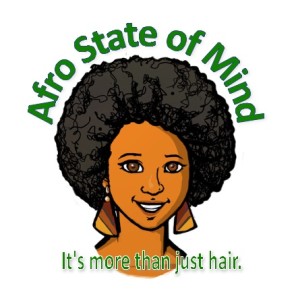
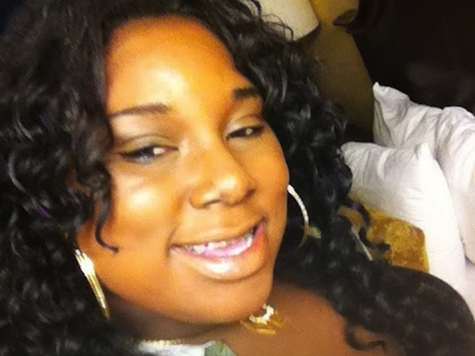
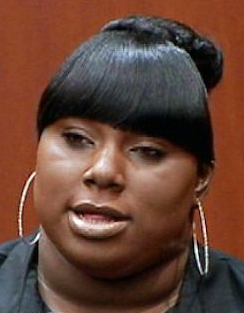


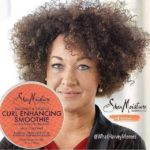
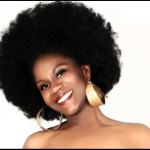
[…] “Rachel Jeantel: Black Girl Misunderstood” by Lurie Daniel Favors, Esq. for Afro State of Mind […]